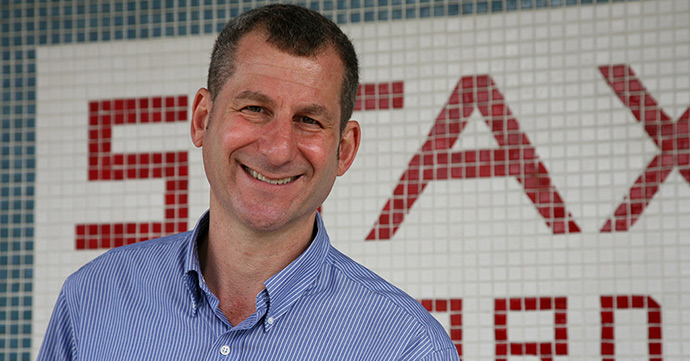
This month, Influence Film Club is featuring BEST OF ENEMIES as our featured film, so we caught up with co-director Robert Gordon to discuss his work. Together with his co-director Morgan Neville (and the skillful editing of our friend Aaron Wickenden), Gordon looks at the historical U.S. television event of 1968 when William F. Buckley Jr. and Gore Vidal squared off in public debate. This televised debate marked a new era in public discourse and television programming. Both leading authors and intellectuals, the two men took place in what would greatly shape today’s media spectacle, for better or worse. Both masters of debate in their own right, they didn’t always keep their cool, and we stand to learn as much from their mistakes as from their skillful methods of argumentation.
What is it that draws you to documentary film?
Truth, being stranger than fiction, proves a compelling way to share stories of how societies become what they are. As a lapsed fiction writer, I find the constraints of documentary—that constraint being the facts—make for a more challenging way to work. Instead of manufacturing events, we have to build powerful narratives from the random realities of what really happened.
What is your history with documentary? How does it intersect with your career as a writer? Is there a red thread that has followed you throughout both?
I knew I’d tell stories, but I thought I’d write novels. Then, in my early 20s, I found that no one was interested in my fiction, but that people liked to hear the stories of things that happened to me in Memphis, my home. There, I’d become involved with artists and musicians from earlier eras, and began to see how geography and economics and commerce all had huge influences on art. Art may be ideas, but the influences that create it are myriad, and the holistic picture of all the forces interacting is more interesting than the individual element out of context.
You had a wealth of archive footage at your fingertips when it came to making BEST OF ENEMIES. What was it like working with this footage, what were its strengths and limitations?
I can’t think of any limitations—it was just a blast. As it was coming in, the editors would post their favorite finds of the day and they were always great. From the beginning, the assemblies that came out of the editing room, archive heavy, were thrilling. We edited for months and months and then when we made the HD transfers of the film footage, there were images in the footage that we never realized were there. Sometimes sound effects had to be changed. We thought Gore was tossing a book on a table and had a thunk in the track, but when the HD transfer came in, it turned out the table was a sofa! So it’s no exaggeration to say that watching the HD transfer was really, even after months of editing, like seeing all the footage anew.
How do you think the film serves as a metaphor for the current political climate in the United States?
That’s both the easiest and the most difficult question. In the simplest way, our film is two opposing political forces that believe the other is going to ruin the country. But it gets more complicated when you consider that Buckley and Vidal actually engaged in dialogue, responding to what the other said. Today, no one listens, it’s just accusations and acrimony. The fear each side has of the other is the same, the refusal to compromise is the same, but Buckley and Vidal were willing to hear what the other said and refute it. That’s why their moment is so interesting: It’s when dialog broke into two separate monologues.
What has been the primary conversation you have observed people are having around the film? Has it stirred up some strong opinions?
Best of Enemies manages to reflect both a horrific funhouse mirror image of where we are now, and also a hopeful model. If once people were not afraid to bare their education and intelligence on TV, perhaps that culture can return. But if even men of the highest intellectual capacities devolve into schoolyard name-calling, is there any reason for hope?
Often after watching documentaries, people wonder what the one most important thing they can do is. What is this one thing you would recommend to someone after watching BEST OF ENEMIES?
Engage in real dialogue with someone who holds opposing beliefs.
What would your documentary playlist consist of?
_____
BEST OF ENEMIES is Influence Film Club’s featured film for July. Each month Influence Film Club hand-picks one of our favorite docs as our club’s featured film to watch and discuss together. Throughout the month, starting with our newsletter and continuing on our website and social media we will extend the conversation by exploring the various issues touched on in the film, providing filmmaker interviews, suggesting ways to Influence, and discussing documentaries in general – because after all, We Love Docs.
Interview by Isis Graham